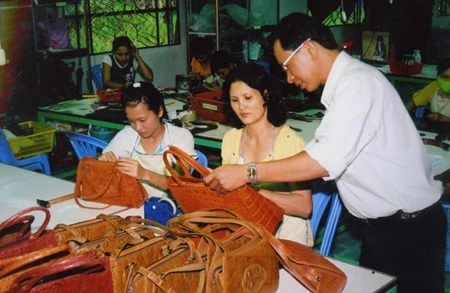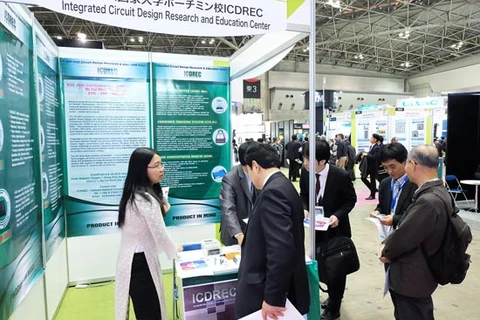Hanoi (VNA) - More than two thirds of consumers in Vietnam or 69 percent believe local brands are most attuned to their personal needs and tastes, according to a report recently released by global measurement company Nielsen.
The Nielsen Global Brand-Origin Survey examined whether consumers prefer goods produced by global/multinational brands (defined as those that operate in many markets) or by local players (those operating only in a single market – the respondent’s home country).
The report said consumer sentiment is a contributing factor to this rebalancing toward Vietnamese players.
It found that country of origin preferences differ by category, but consumer preference has started to favour local brands over global brands. Even in categories where global brands have historically dominated — such as shampoo, carbonated soft drinks, facial care, facial moisturiser and infant formula — local brands are growing more rapidly, echoed by positive consumer sentiment.
Around 80-90 percent respondents in Vietnam say a brand’s country of origin is as important as or more important than nine other purchasing drivers, including selection/choice, price, function and quality.
The report also highlighted national pride is the key factor contributing to consumers’ choice of local versus global brands in Vietnam.
A desire to support home-grown brands makes nearly half of Vietnamese respondents (48 percent) choose local brand instead of global one.
Besides, value for money (40 percent) and having positive experience with the brand (27 percent) are among the top-selected reasons for selecting a product.
“The entry of multinational companies (MNCs) into new markets — while presenting advantages for local consumers who gain access to a greater range of products — can be a big challenge for local companies, which are suddenly faced with daunting foreign rivals that have an array of advantages, including vast financial resources, diverse talent pools, sophisticated technology infrastructures and well-established delivery and operating practices,” says Laura McCullough, managing director, client service leader of Nielsen’s growth and emerging markets.
“However, in recent years many local companies have not only survived the competition from multinationals, but have outperformed them in Southeast Asia,” she said.-VNA
























